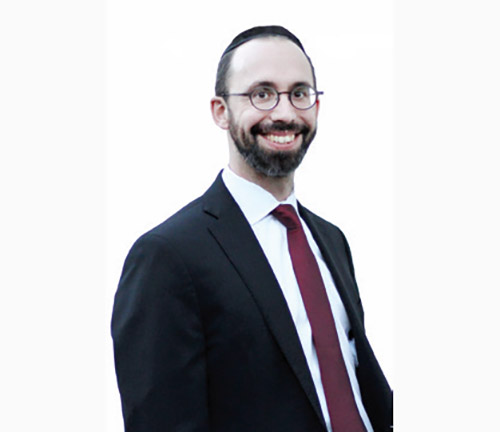
Last summer, my wife and I went to Lake Placid, New York, and toured the Olympic bobsled track training center. We learned a very interesting detail: the competition in this sport is so close that the race is won by a mere 1/1000th of a second! A crucial part of the race is the “loading”—how quickly the bobsledders run and load themselves onto the bobsled. If they are a second too slow, the race may already be lost. The opening move is pivotal; speed means either victory or certain defeat.
Parshas Re’eh begins with the words “See, I have placed in front of you today (hayom) the various blessings and the curses.” Why the emphasis on the word today? The Chidushei Harim explains “today” is there to teach us that each day is a new beginning. Even if yesterday did not go as planned, today is still a new day with its own potential for mitzvos and blessings.
Ever wonder why Hashem made day and night and the need to sleep? It’s all part of the Divine plan. We wake up in the morning to a fresh new start. Each day Hashem renews our ability to make proper and correct decisions. We see this in the first of the morning blessings—hanosen lasechvi binah—Hashem gives man a new perspective every day. The same is true for each new week and each new month.
This Shabbos, Parshas Re’eh, occurs on Rosh Chodesh Elul. It’s time for a fresh start in this very last month of the year. Earlier, in Parshas Eikev, it says Hashem is watching over us from “reishis hashanah ad acharis shana,”—from the beginning of the year until the end of the year. The “hei” at the beginning of a word (here, hashana) refers to a specific item or event—the year. Why does the first mention of the word shana have the letter “hei” in front of it and the second mention doesn’t?
The Satmar Rebbe, Rabbi Yoel Teitelbaum, gives a most insightful explanation. Our sages tell us reishis hashana, the beginning of the year, is referring to Rosh Hashana. At the start of a new year it is common for people to say this year is going to be “the year.” Last year was not so great. I didn’t meet my goals or accomplish all that I planned or wished for, but this year I’m going to make it happen. This year is going to be “the year!” That is why reishis hashana—the beginning of the year—is spelled with a “hei.” However, at the end of the year, it often happens that people realize they did not make it “the year they wanted it to be.” It was just…another year. That is why it says acharis shanah—at year end, without the “heh.” It was not “the year,” but just another year.
The Sefardic version of Kedusha in Shabbos Musaf says: “Hein goalti es’chem acharis k’reishis”—the redemption will come when the end of the year is like the beginning of the year. Indeed, this is the formula to achieve redemption—when we carry through to the end of the year the development of the plans we began at the beginning of the year, making the current year into “the year.”
We are now at the beginning of the month of Elul, the last month of the year. By giving us a new perspective each day, Hashem is telling us, “You can start again today!” Even if we have not yet met our goals and expectations we can still start anew today. Unlike the bobsled race, a quick start is not critical. Today is still a fresh opportunity. We can look back and review the plans we set for ourselves last Rosh Hashana, see what has been completed and do our best to accomplish more or even all of our goals We still have a chance to make “the end like the beginning,” and with this opportunity we can make it “the year.”
And how do we do that? What is a key activity that will enable us to link our ambitious beginning to our current status quo? It’s easy: Torah study. We start the day reciting Modeh Ani and conclude with the words “Torah tziva lanu Moshe”—Moshe taught the Jewish nation Torah. If we haven’t yet made a sufficient effort, Elul is a special time to reconnect to Hashem’s Torah. Let us begin this opportune month of Elul with a great start and make the last month of the year even more successful than our first. In this way, may we merit that this year really be “the year,” and welcome Moshiach as well!
By Rabbi Baruch Bodenheim
Rabbi Baruch Bodenheim is the associate rosh yeshiva of Passaic Torah Institute (PTI)/Yeshiva Ner Boruch. PTI has attracted people from all over northern New Jersey, including Teaneck, Bergenfield, Paramus, Rockaway and Fair Lawn. He initiated and continues to lead a multi-level Gemara learning program. Recently he has spread out beyond PTI to begin a weekly beis midrash program with in-depth chavrusa learning in Livingston and Springfield. This year he joined Heichal Hatorah in Teaneck as a Gemara iyun rebbe. His email is [email protected].










